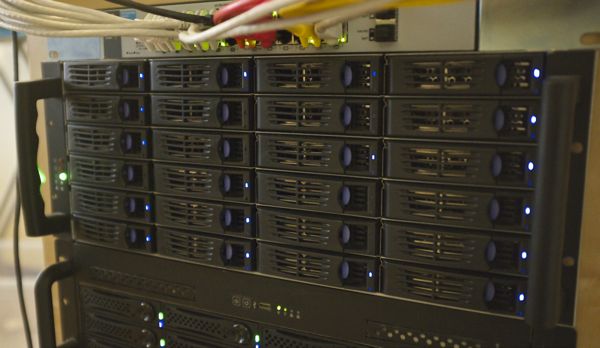
In 2014, a PC hardware enthusiast from the Netherlands built a 71-TiB (approximately 78 terabytes) network-attached storage (NAS) that used 24 4TB hard drives. Ten years later, Louwrentius says the NAS is still running and hasn’t experienced a single drive failure.
The NAS owner said the 4TB HGST drives have only accumulated 6,000 hours since their deployment, translating to about 600 hours or about 25 days annually. Louwrentius turns off the NAS when unused, which the user claims is the likely secret to its longevity.
The NAS is only turned on remotely when the user needs to read or write data using a script to switch on the smart power bar where the NAS is plugged in. When the baseboard management controller (BMC) on the NAS’s motherboard has booted, the owner then uses an Intelligent Platform Management Interface (IPMI) system to turn on the NAS itself (although the owner said that they could use Wake-on-LAN, too). After Louwrentius finishes using the NAS, he runs another script that shuts down the server and the wall socket.
Although the enthusiast’s primary reason for setting up this seemingly complicated bootup process for their NAS is to save on energy consumption, it seems that it also had the side effect of prolonging the life of their hard drives. Given that most hard drives are only rated to last three to five years, then the 10-year longevity that Louwrentius has on the systems means that he is lucky with their drive choices or he’s doing something right. But even if it’s luck with the 24 installed drives in the system, Louwrentius also claims that a previous system, which has 20 1TB Samsung hard drives, didn’t experience any drive failures through its approximately five-year lifespan.
The only hardware replacement Louwrentius made to the system was when the motherboard failed. Since it was impossible to access the BIOS, the owner had to replace it. It’s a good thing he acquired a replacement on eBay, allowing the NAS setup to store data for another day.
While we cannot 100% determine that turning off the HDDs is the sole reason for the longevity of these drives, it seems that it does have some impact. Nevertheless, it might be a good idea for users to occasionally check the health of their storage devices or at least copy the backups on new drives every few years. That way, even if one of the drives fails because of age or deterioration, you’d still have a copy of your most important files — something that the music industry is just discovering now as their archival hard drives are now recording a 20% failure rate, even when stored properly.







